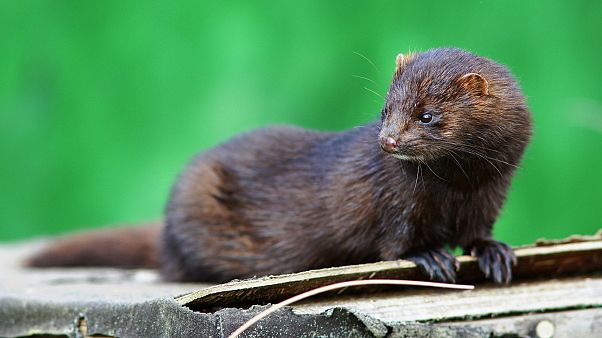Coronavirus: A mink may have transmitted COVID-19 to a human, says Dutch government
The Dutch government says it has evidence to suggest a human has contracted coronavirus from a mink.
In a letter sent on Wednesday, the Dutch agriculture minister Carola Schouten said a worker on a mink farm had contracted a strain of COVID-19 that was similar to that found in an animal on the premises.
She said this meant it was “likely” that mink-to-human transmission had occurred.
“These new research results have a major impact on the owners, families and employees of mink companies as well as on the local communities,” she said in the letter.
“I am therefore in close contact with all these parties involved.”
It is not a new development to find COVID-19 in mink, which are semiaquatic, carnivorous mammals bred for their furs, as cases were found in two farms in the Netherlands back in April after workers noticed some of the animals were having difficulties with breathing.
Authorities initially assumed people had infected the animals; however, at least one case is now thought to show this happened the other way round.
As a result, further restrictions have been placed on mink farms, including screening for all farms in the Netherlands, and requirements for employees to wear protective equipment.
Animals and manure on infected farms are banned from leaving their sites.
Despite the evidence of mink transmission of COVID-19 to a human, the Dutch government said chances of this happening remained “negligible”.
These are not the first cases of infections in animals.
“CDC is aware of a small number of pets, including cats and dogs, reported to be infected with the virus that causes COVID-19, mostly after close contact with people with COVID-19,” it added.
It advised people to treat pets as they would other human family members and to not let them interact with people or animals outside the household. It also recommended that if someone in the family develops symptoms, they should also be isolated from pets.

